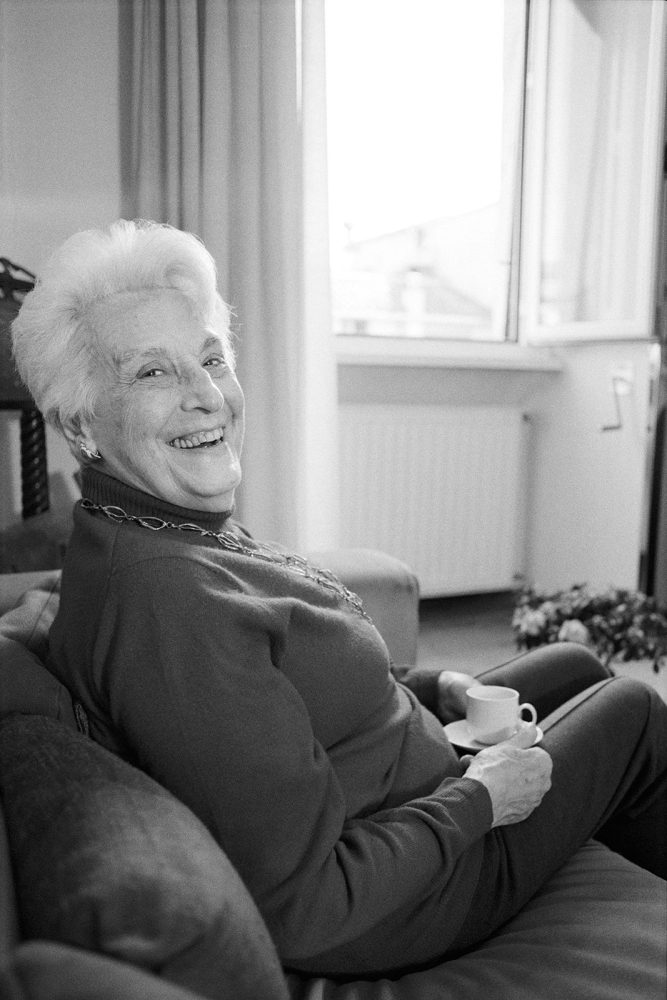THE NUREMBERG TRIALS
“I went to Germany for the Nuremberg Trials. I covered the Nuremberg Trials and then I started working as a journalist in Italy. I covered the final part—the verdict, the last speeches, Goering’s speech, and so on. It was terrible seeing these Nazis as vanquished people. And I remember Goering’s last speech. He knew he would be sentenced to death. He said, ‘For us it is over [the Nazis] but I see the ‘red man’ is coming up. He meant…he claimed that the Nazis were rescuing Europe from Communism, from Bolshevism. And he said he saw this Communist wave coming over Europe. And that was really shortly before he was executed. It was quite an experience.
Relying on God is a delicate issue touching my faith. I felt always in life that I mainly had to rely upon myself…with my conscience, with all that I am, belonging to an ancient Jewish community which I have never betrayed. Though we were persecuted under the racial laws, I felt that my dignity required that I not die myself because I was being persecuted. And I stuck to my identity. I was not particularly religious, but when I went to America, I met a nice Jewish boy. An Italian Jew. And we were married in the Spanish and Portuguese synagogue.”
Daniel’s Reflection
I met Tullia Zevi in her flat overlooking the streets of the Jewish Ghetto in Rome. Tullia Zevi was a larger-than-life figure in the Italian Jewish community. I am so grateful that my producer in Rome, Sheri Jennings, was able to secure an interview with her. Tullia’s family was fortunate to get out of Italy at the beginning of World War II, first to Paris but then to the United States. In Boston, she met her husband, also an Italian Jew. He came back before the end of the war to work in the underground, creating shortwave radio broadcasts.
Tullia returned to Europe after the war as one of the very few women journalists to cover the Nuremberg Trials. She spoke with me about how the reporters would have to walk the halls at night just to get out of their heads the stories and testimonies they would hear during the day. Tullia went on to have a celebrated career as a journalist, first for the Religious News Service and then for the Israeli newspaper, Maariv. She was elected four times to lead the Italian Jewish Community in what turned out to be a 16-year span of leadership.
Tullia’s faith played out in her strong Jewish identity, one she never betrayed despite the persecution. Tullia Zevi died in 2011, leaving behind a great legacy. She helped Italian Jews bridge their pre-war to post- war realities and opportunities. May her memory be for a blessing for all of us.







